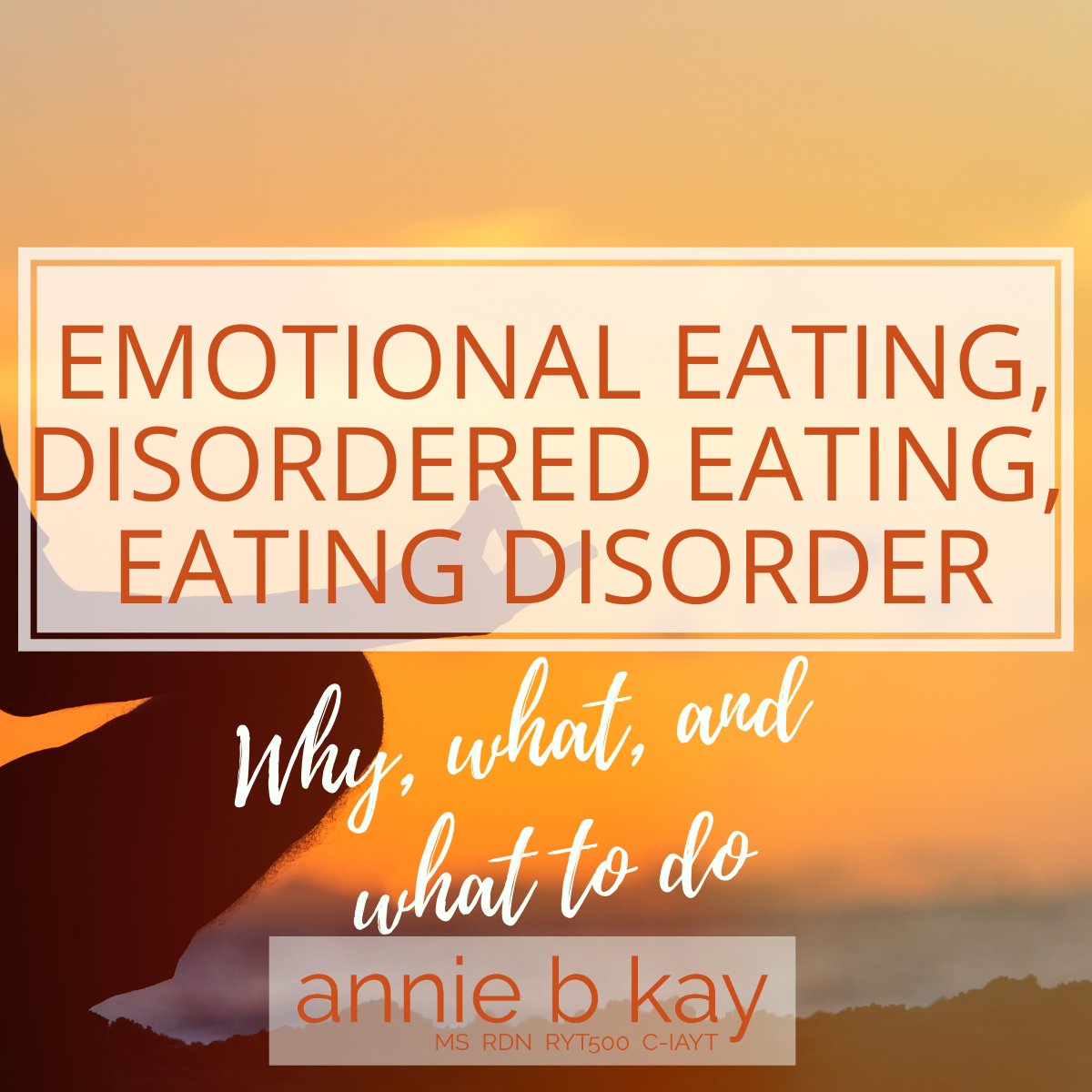
What, Why & What to Do
These words – emotional eating, disordered eating and eating disorders – are often tossed around by people who don’t understand the complexities of an individual’s relationship with food. Your relationship with food, I’ve learned from decades of serving those struggling with these issues, is as unique as you are. Some folks have very little emotion in their relationship with food, while others are near pure emotion. One is not better nor healthier than the other, though one is easier when it comes to shifting your eating.
Why are some of us so emotional about food? When does it become a problem?
Everybody eats. Every human feels the effect of what they eat. So, in one sense – of what happens in their own body and mind – everyone IS an expert. An expert of their own experience.
When it comes to naming other people’s experiences, however, understanding the deeper currents of our own behaviors, and recognizing when we’ve blasted past the guardrails of healthful behavior, gets complicated. Food is a stand-in for everything – from love to politics to economics. I see a complex relationship with food as a collection of opportunities for self-inquiry and healing.
A Deadly yet Well-Hidden Issue
Why is it important for everyone who eats or cares for an eater to know what these terms mean? Don’t we all want to be slim and look healthy? Actually, no. When it comes to weight, our culture needs a serious re-imagination of what health – and beauty – looks like. I’ve experienced many thin unhealthful people, and many many a healthy full figured woman or man. Science continues to confirm that it’s your behaviors, not the number on the scale, that determines your health. Let’s celebrate our beauty in it’s unique fullness and the beauty of every body shape and size, every age and color.
When my own eating disorder was most active (and I looked most like an ‘after’ weight-loss picture) was the summer of my sophomore year at Cornell, where I was, ironically or not, a nutritional biochemistry major. I worked on the beach on Hilton Head Island with a group of friends, drank a six-pack of diet coke by day, something alcoholic by night and allowed myself one bag of the junk food of my choice each day. Nothing else. There was cocaine.
When I returned to school, I was showered with enthusiastic attention for my petite boniness. My mother cried when she saw me, correctly worried for my health and maybe my life. I eventually found the help I needed, through counseling and a body-kind yoga practice. Aspects of a disordered eating mindset, and the physical fallout of decimating my physical body haunt me to this day. Now, however, I have a bagful of nutritional, emotional, mental and physical tools to rebalance.
Eating disorders are the deadliest of psychological disorders. A young woman with anorexia, for example, is 12 times more likely to die young (2), and 59 more likely to commit suicide (3) than a young woman without it. Eating disorders don’t discriminate – every gender, color, religion, and corner of the planet have their versions, and we are all susceptible – particularly young people in the formative years of their identify. Even the wold of yoga struggles mightily.
In addition to high risk of death, eating disorders are wildly unbalancing to your physical and emotional well-being. When an individual over-restricts their nutrition, they have inadequate vitamins, minerals, healthful fats and energy to maintain a healthy brain and nervous system. Purging (vomiting) erodes teeth, impares digestion in ways that undermine bone and mental health, and sets a body up for future weight gain. Fatigue, low energy, and inability to think clearly are common.
Here is a mini-primer that can help you understand what these words mean, and if and when it’s time to get some help. I hope it helps you know if your health is at risk or you are simply a human enjoying treats. Treats, by the way, are part of healthy eating.
Food is one of life’s great sensory experiences. Enjoying what we eat without feeling bad about it, or getting compulsive about it, however, is for some one of life great struggles. Happily, there are many dietitians well-versed in how to support you in your journey to finding more peace and balance with food.
Emotional Eating
Emotional eating is when you eat to address an emotion rather than your physical body’s need. Eating when you are stressed, uncomfortable, worried, or bored has physical hard-wiring based in our genetics of survival. Biochemically, stress gets relieved for the moments you are eating. Problem being, eating never solves the real emotional problem you’re being invited to address.
Everybody has this biochemistry, and the more you use it the stronger it gets. It’s easy for emotional eating to slide from sensual delight of occasional treats into a daily mechanism for managing emotions. When you begin to use food as a means of getting through the day, or managing stress, you’ve got it. Imbalance isn’t far behind.
Every human who has access to bountiful food and stress does some emotional eating. It’s normal. We all, on occasion, overeat. When emotional eating leads to consistent over-eating or begins cycles of deprivation then binging, and the emotions become fear-dominated and increasingly self-incriminating, that’s when it’s become something else. It has led to disordered eating.
Disordered Eating
Every eating disorder begins with a diet. Whenever you manipulate what you eat to create an effect – be it to lose or gain weight, or even to address a biomarker like high blood glucose (sugar) or high blood pressure, you are on a diet, and therefore at risk. You are no longer eating in balance.
Some nutritionists would say ‘diet’ is a dirty word and we should never ever do them. I would say that whenever you ‘diet’, be under the care of a qualified nutritionist. That’s because any diet as I’ve described it, puts you at some risk for emotional or disordered eating. These are next steps along the continuum toward an eating disorder. A qualified nutritionists will spot that slide (hopefully) and curb it before it becomes a psychological problem.
What, when and how you eat impacts your psychology to a impressive degree. So, when you alter how you eat, it’s serious stuff. The media is a nutrition disaster – filled with conflicting and often incorrect or poorly described nutrition information. Some seeking health quickly get lost in binge-deprivation cycles, obsessiveness or compulsion and compensatory food behaviors. Nutrition doesn’t work like that (quick adjustments don’t work for weight or preventing chronic disease – it’s not a straight-forward equation). Over time restrictions change your body composition, which changes your metabolism and nutrient needs. It also impacts your mental health through long-term inadequacy of nutrients needed for brain and nerve health, and psychologically through deprivation. It’s the plight of the ‘good dieter’ that over time, you loose muscle mass and create physical and psychological imbalance through restricting. When it comes to weight, slow and steady always wins the lifelong health race.
Disordered eating is when you follow a diet that erodes your physical and mental well-being. You continue the pattern even when you experience fatigue, irritability, illness and other signs that the diet isn’t working for you. Overly restrictive diets, over exercise, and eliminating entire types of healthful food for weight, often do the trick to create a lifetime on a rollercoaster of suffering. Managing weight and health doesn’t have to be that way.
Eating disorders
Eating disorders (ED) are a collection of psychological imbalances of abnormal or maladaptive eating and related behaviors. Each type of eating disorder is based on signs, symptoms and behaviors. The science of eating disorders is young and evolving, as people with identical symptoms might have different underlying causes and benefit from different strategies. It’s a fluid, moving line of when and how emotional eating and disordered eating turns into a diagnosable eating disorder. Everyone is different. With effective treatment more available, if you struggle with eating, err on the side of getting help.
Here are a few eating disorders defined by the Diagnostic and Statistical Manual of Mental Disorders, 5th edition. These definitions are not complete nor exhaustive, but if you recognize yourself in the next paragraph, you can get help.
Anorexia nervosa (heavily restricted eating, intense fear of weight gain, body image disturbance); Bulimia nervosa (recurrent binge eating, feeling a lack of control, inappropriate compensatory behaviors, self-evaluation focuses on weight); Binge eating disorder (regular binge eating without compensatory behaviors); Avoidant/restrictive food intake disorder (ongoing excessive dieting); Night eating syndrome (binging at night); Purging disorder (vomiting after binging); to name a few.
An individual with an eating disorder can be any weight – under, over or normal. An eating disorder can become more and less severe, based on how frequently the behaviors occur. An eating disorder can be inactive, then reactivate under stress.
Until an individual has long-term treatment that instills confidence in nutritional adequacy without disordered behaviors, the self-knowing to understand when disordered cycles are underway, and when support is needed, their eating disorder remains active. Many nutritionists have issues with their own relationship with food, yet can provide excellent professional support so long as they have participated in treatment, have access to ongoing support and clinical supervision. An individual with an active eating disorder who has not received treatment from a qualified professional may do more harm than good in supporting healing for those they would like to serve. Clinical supervision (ongoing review of clinical cases with an experienced clinician) is especially helpful for those treating eating disorders.
What to Do?
If you think you have an eating disorder and feel ready to make a change, there are many qualified psychological and nutrition professionals to choose from. In fact many doctors, psychiatrists and psychologists work together with nutritionists on an integrated plan for healing. Your doctor may work with someone, so that may be a place to start.
If you’ve read this far, you’d probably benefit from making an appointment with me! I’ve done this work for years, and helped thousands to women & men find more peace with food. Please know there are many dietitians well-trained to help you, so if you are looking for someone in your state or locally, there are great resources to help you find the right a nutritionist.
Find a trained, experienced pro to help
NEDA – The National Eating Disorders Association – helpline: (800) 931-2237 NEDA is filled with resources & support, including an online screening tool to help you determine if it’s time to get help.
The Academy of Nutrition & Dietetics (AND) – Articles to help you understand eating disorders, and “Find an Expert” directory of dietitians.
EDReferral – Find lists of trained dietitians and other professionals, treatment centers, and information.
Sources
(1) Jessica Setnick, MS, RD, CEDRD. Eating Disorders, Second Edition. Academy of Nutrition & Dietetics, Chicago, IL. 2017.
(2) Sullivan PF. Mortality in anorexia nervosa. Am. J Psychiatry. 1995.
(3) Keel, PK et al. Predictors of mortality in eating disorders. Arch Gen Psychiatry. 2003.
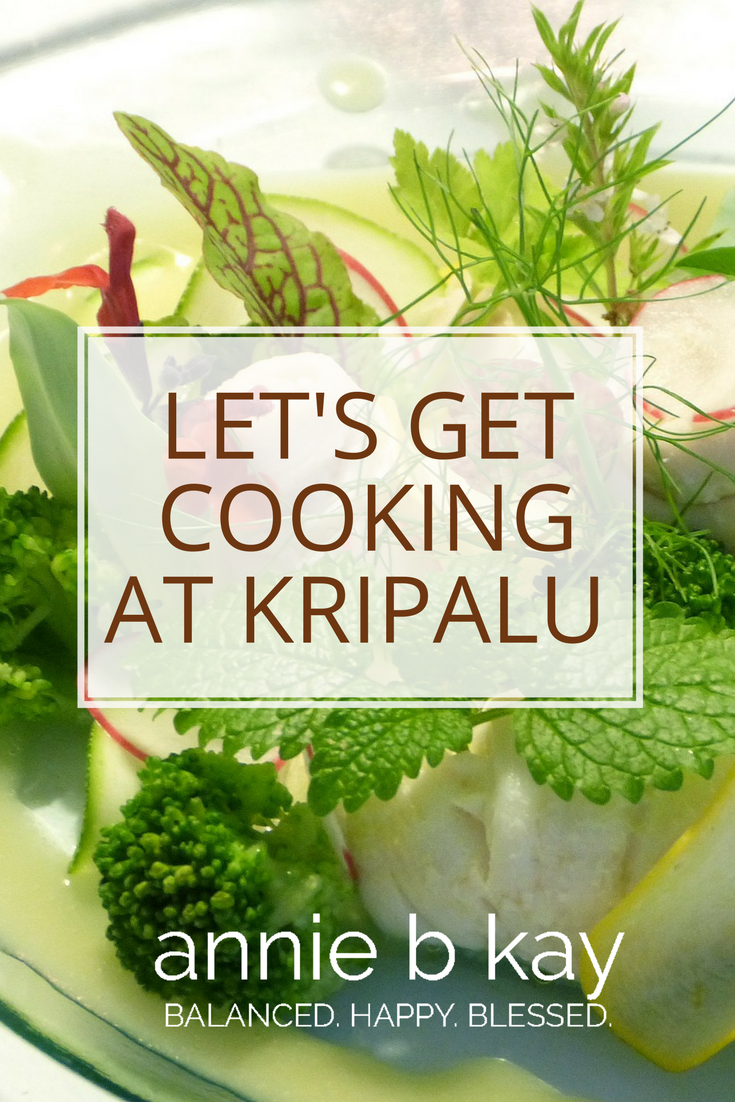
Want to eat better? Cook.
People who cook at home are healthier – studies like this one suggest they eat fewer calories, more nutrients, less sugar and more fiber. When you eat better, you feel better, look better and just might live longer. It’s worth it – you’re worth it.
Want to really eat better? Learn to cook (and eat) at Kripalu.
When people come to do yoga at Kripalu, the largest yoga and holistic education center in the country, they rave about the food. The food there is rave-worthy, filled with fruits and vegetables lovely prepared into delicious dishes.
A couple times a year, I team up with Kripalu’s Executive Chef Jeremy Rock Smith to offer a program called Nutrition and Cooking Immersion. Over the course of a five night program, we take you through the basics plus of a mindful approach to nutrition, and the basics plus of preparing delicious balanced whole food cooking tips for home.
I think of this as the perfect program – the perfect balance of information (I teach nutrition and mindfulness in the morning) and experiential learning (in addition to mindfulness experiences in the morning, the knives come out – in a good way – in the afternoon). Through the week, you put together – while understanding why – a balanced meal with variations. What you leave with is a plan. And some skills. And the know-how to feed yourself. Well.
What unfolds looks a little like this:
Sunday night: Welcome and introductions – of each other, of the program.
Monday & Tuesday morning: The new basics of whole-food plant-based nutrition
Wednesday: Supporting positive change
Thursday: Planning for success: meals, recipes, shopping lists
Friday: Take it home
Now, let me tell you about my colleague Jeremy.
To say that Jeremy is entertaining is an understatement. He’s funny. I’ll let you be the judge of just how funny he is. He’s not only funny, however. He brings the goods. Even foodies learn a little something new from Jeremy. He’s designed the afternoon cooking session to give you cooking tips and the principles of whole food plant based cooking, and then a flexible framework to help you make it seasonal and flexible and varied.
Five-day Transformation
I’ve been teaching this program for 7 years or so, and I love to see the transformation that happens to people from Sunday night when we come together – nervous, afraid it ‘won’t work’, stressed from life, to Friday morning – roaring to get back to our own kitchens, confident and ready to go, rested and yoga-ed up. Another part of the secret sauce is the bonds you make with other people in the program – I have a growing Facebook group of grads of the program, and years later, they’re still cooking.
So, if you want to get into your kitchen with a little more enthusiasm and a little less angst, see you there.
If you want to bring whole-food plant-based eating into your life, and learn cooking tips to do that, see you there.
If you want to know the why 0f eating – and the how of eating – see you there.
Here’s where you can check out all mu upcoming workshops.
Be well.
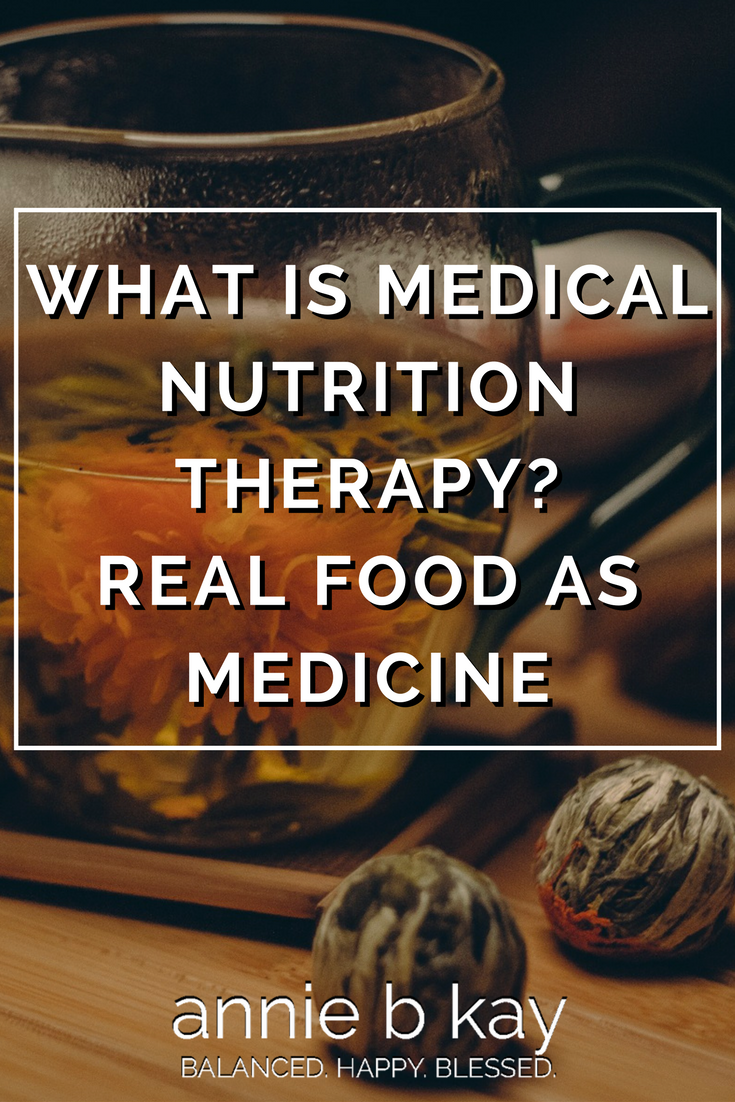
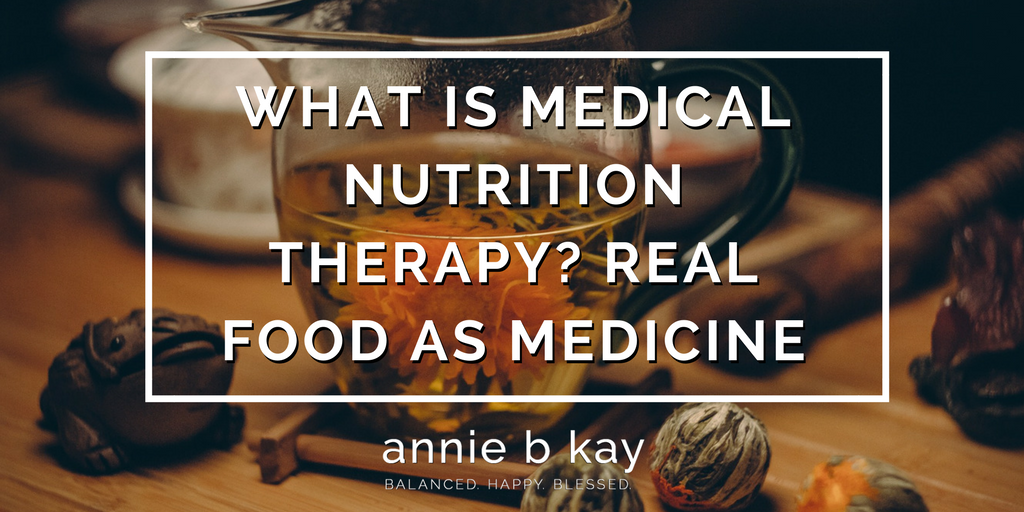
We are in the era of the nutritionist. There is so much confusion around food and nutrition, and so much wacky advice flying around. This while Americans are just not able to make it to the basics of healthful eating. Nutrition-related chronic diseases continue to be the primary health issues, and each of us has our own variation of health and disease.
Because we are in a time when so much that sounds like nutrition is actually marketing and bluster, and so many who call themselves experts are so far from it, confusion reigns. Enter RDNs (Registered Dietitian Nutritionists) and MNT (Medical Nutrition Therapy). If you know me, you know that I am a mind-body therapist – I use things like meditation and gentle yoga practice as tools to help us cultivate the best of ourselves, and soothe us as we gather our courage and strength to sing our song, to sing our note.
What is MNT?
There is a large body of evidence that tells us how to manage a range of health and medical conditions with food and nutrition. MNT, or medical nutrition therapy, uses that evidence and through a qualified therapist, translates that evidence into healing. While there is a range of nutritionists operating today, with various levels of education and experience, and I honestly believe there is room for everyone, I am partial to those who have a 4-year science degree and access to the Academy of Nutrition and Dietetics Knowledge Center for working with people with a medical condition. I am biased for sure, being one who sweated through all that nutritional biochemistry and worked in an ICU (intensive care unit of a hospital) writing TPN (total parenteral nutrition) orders to keep people alive until they could eat. Then I taught at Kripalu for nearly a decade, watching how mind-body used skillfully helped people with the will and knowledge transform. The combination of clinical skills and experiential practice are, in my opinion, the sweet spot when it comes to healing nutrition-related issues.
What conditions are we talking about?
There are guidelines for a range of medical conditions. Those I am well-versed in include:
- Weight gain – from adolescents to adults, and family-based, for any reason
- Eating Disorders, emotional eating and disordered eating
- Unexpected weight loss due to cancer, HIV/AIDS or other chronic condition
- Pre-diabetes and diabetes
- Cancer – prevention, management and prevention of recurrence
- Heart Disease – prevention, management
- High Blood Pressure
- High Cholesterol
- Digestive approaches to auto-immune conditions (Fibromyalgia, Rheumatoid Arthritis, and others)
- Digestive distress due to:
- Irritable Bowel
- Crohn’s Disease
- Colitis
- Constipation
- Reflux/Heartburn
- Food Intolerance (lactose-intolerance, gluten, and others), and Allergies
I use an individualized approach. That includes an initial assessment of nutrition-related symptoms and medical history, review of nutrition-related labs and reports, and development of a custom way of eating that you enjoy and that adheres to evidence-based practice.
We then co-create a plan to get there – your way. There is no such thing as failure, no such thing as relapse in this world – but there is learning, through loving self-compassion, how to navigate your life in its fullness. It’s a dance of mindful skillful effort, and surrender (that’s yoga!).
Within that list, do you specialize?
While I can help address any of these conditions, and they all have relating threads, I particularly like to work with weight, women in midlife, and digestive issues. I have also had a personal experience with cancer, so helping people with that interests me.
How much does it cost?
Depends. I am a licensed nutritionist in the state of Massachusetts. If you have a medical condition and live in the great state of Massachusetts, or another state that does not have state licensure, it is worth it to give your insurance company a call to see if our work together can be reimbursed. For this, you will likely need a referral from your primary care doctor.
If you are not insured, in another state with licensure or your insurance doesn’t cover, then you are what clinicians call private pay. It’s likely that our work together could be included in your health spending account if you have one.
Bottom line, if you value your energy level and lifestyle, it’s worth it to have a skilled coach to help you move forward.
My rates are $150/hr, and most people I work with do an initial assessment, then a half-hour twice monthly for 2 months, then monthly for 4 months.
Tell me about telehealth
I’ve partnered with a practice-management group called Healthie. They provide an interface for us to work through, including journaling, billing and video conferencing. So, we can meet face to face in the comfort of your own home! I think telehealth is part of the future of medicine, and I am excited to be part of it.
Ready to make the change? Let’s do it – Make an appointment now .
Questions? I’m all ears.
Be well,
Annie
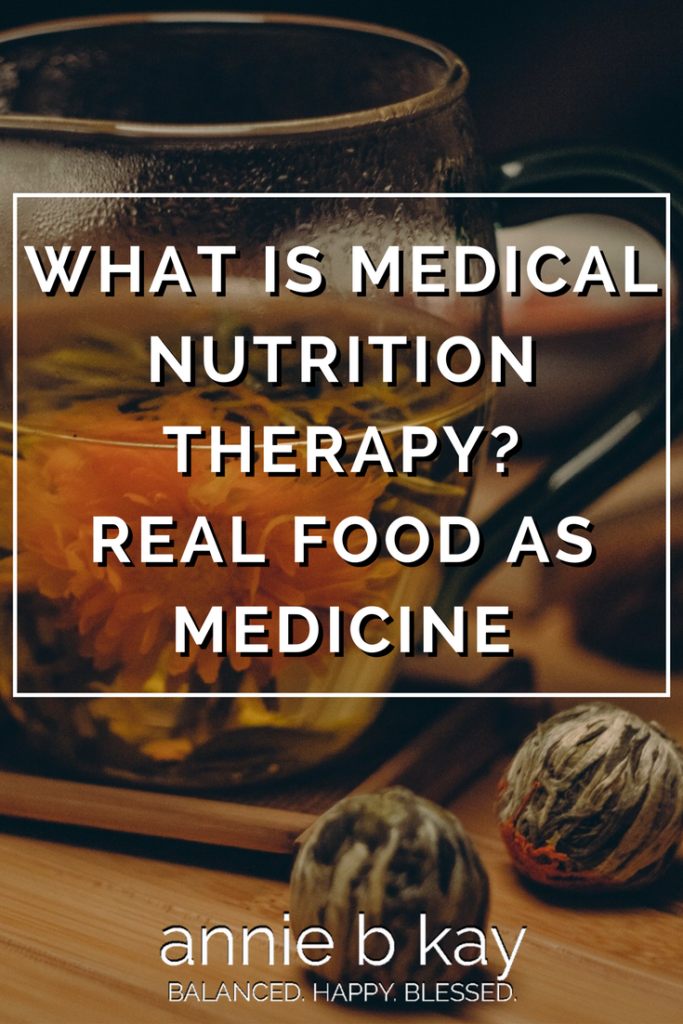
Pinterest
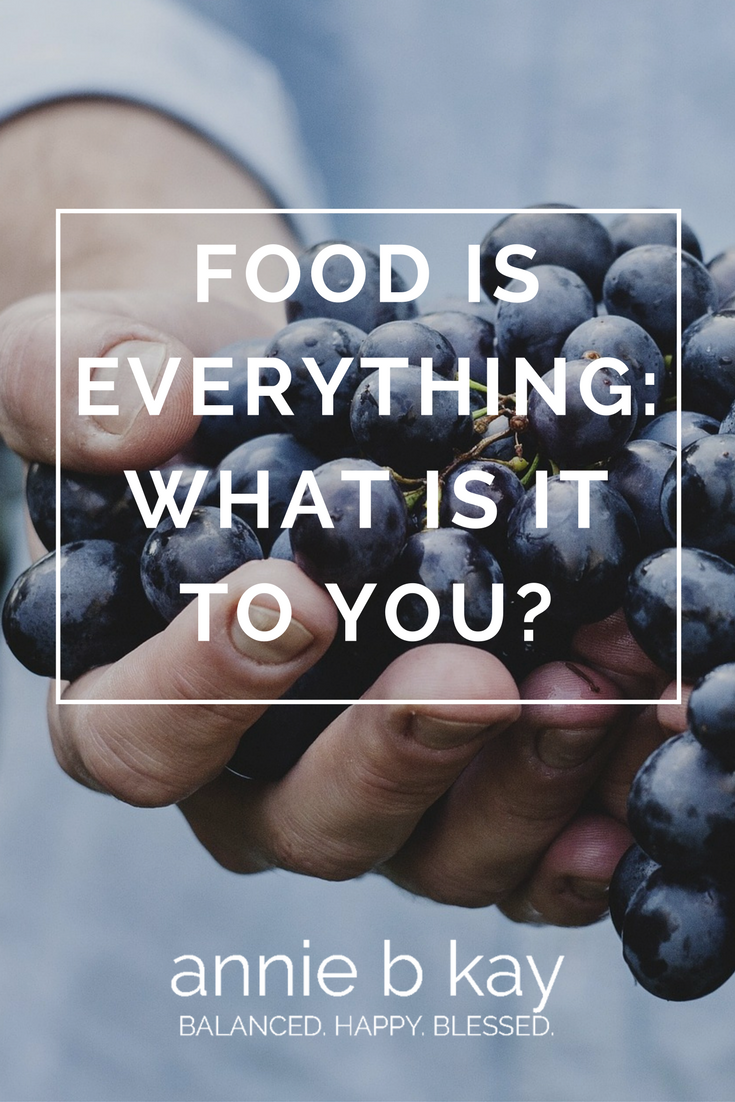
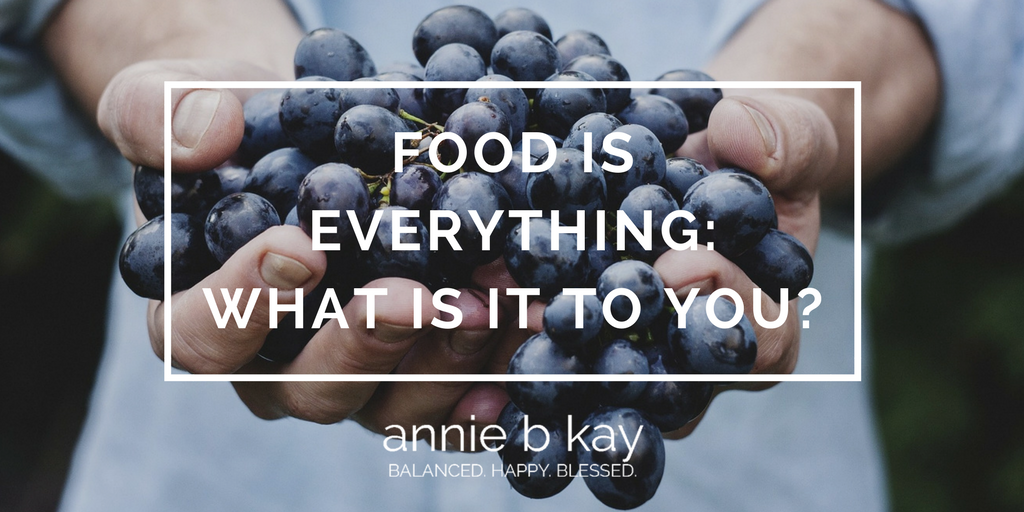
When I first chose to study nutrition at Cornell so many year ago, I could not have imagined the evolution in what we think about when we think about food. Nor could I have imagined the changes in the food we eat in this country.
Food, here and now, is just so everything.
My friend, colleague and visionary Kathie Swift often quotes Jean Anthelme Brillat-Savarin, who was right and prescient when he said: “Tell me what you eat, and I’ll tell you who you are.”
Food is…
Social
It’s the center of most gatherings of family, friends and colleagues. What we feed others communicates how we feel about them and expresses to them who we are. We have intimate dinners, casual nights, celebratory feasts. To be a good friend, feed someone. To show love, feed someone.
Economic
Growing up, the quality of food available not so directly related to income as it is today. Now we have food deserts, over-consumptive malnutrition (the real epidemic of weight, where those without eat a higher-calorie yet lower nutrient-density diet), and food marketing is disguised as real nutrition information or education. If you are poor in America, you just don’t have access to high quality nutritious food. Thank the Lord for WIC and other food assistance, which can close the worst of the gap if used well.
Environmental/Ecological
What you choose to eat impacts the planet and you can’t get around that. Meat is rich in every sense of the word. It is nutrient dense, resource-rich, high-impact, and energetically hot stuff. No inherently evil, but easy to overdo, and human nature seems to make us overdo it in spades. Today we eat twice as much protein as we physiologically need, yet new diet after new diet tells us we need more more more. The truth is we don’t if we cultivate a balanced whole-food active life.
Political
Every 5 years, a big bill works its way through congress. That bill, the Ag Bill, determines to a great extent what America eats. What America eats these days is subsidized GMO soy, factory-farmed meat, dairy, corn (to be made into the high-fructose corn syrup which researchers agree is undermining health on a grand scale). We can change it – the last round had a bit of funding for organic fruits and vegetables, and linking school lunch with farmers’ markets. You can vote on this by calling your congresspeople and insisting on the funding shifts you want.
Emotional
I personally have an emotional relationship with food. Changing my diet takes a long conversation, and a bargain with myself. Do this and I’ll treat myself in this way (often a massage or oil dip at Kripalu healing arts, or a new get-up).
Tactile and Sensual
Food is beautiful. It’s smells, textures, and of course, flavor absolutely thrills most of us. Yum. I’m working on a book project on whole food, and how to make it as easy as possible to eat healthfully. There’s no getting around the need to come into close personal contact with food when it’s whole. You have to cut the bottoms off asparagus and put fresh spears in water. You have to trim herbs and place them in water. You have to crack the egg, (and hopefully, put all the scraps into your compost bucket – wowsaa another spring topic!). We can do things to make cooking efficient and as easeful as possible, but ultimately, you have to revel in the sensuality of whole food.
I could go on – it’s love! So, take a little time considering a two-way relationship with the whole food you cook and eat. As you slice a carrot or dice an onion, take a breath to wonder what the carrot would say to you if you’d listen? Who is that onion, anyway?!
This is why changing your diet is such a huge deal. Because when you change your diet, you change everything. You become someone else, bite by bite. So, be easy on yourself if you are finding it challenging. Notice what’s hard, and press on. Make the healthful choice anyway. If you fall off the wagon for a meal or a day, get right back on. Practice practice practice, not perfection.
Enjoy!
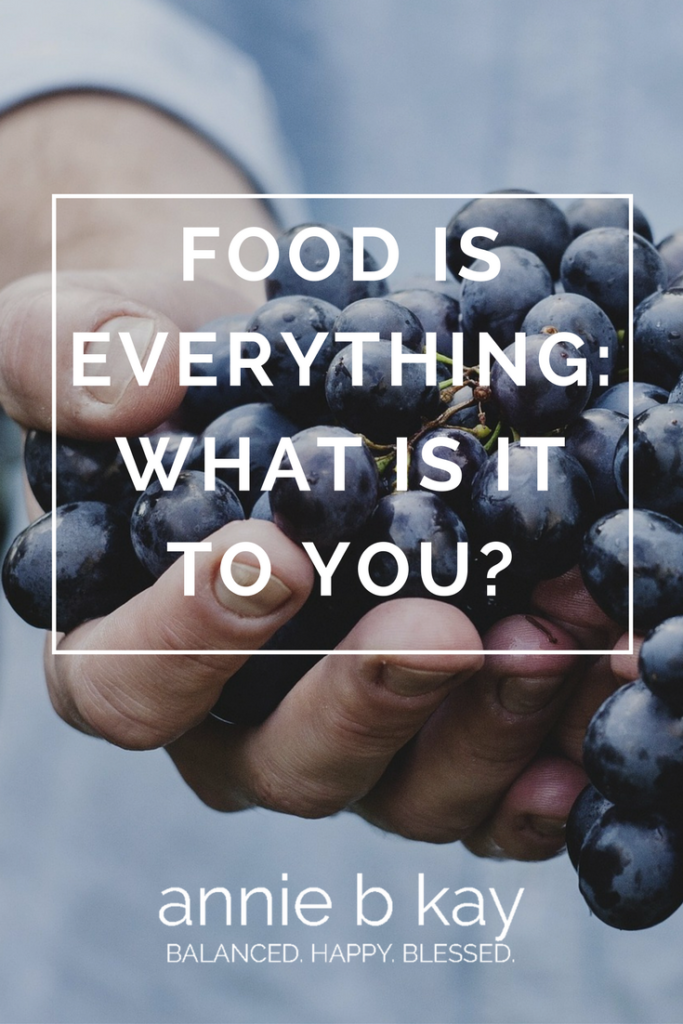
Pinterest
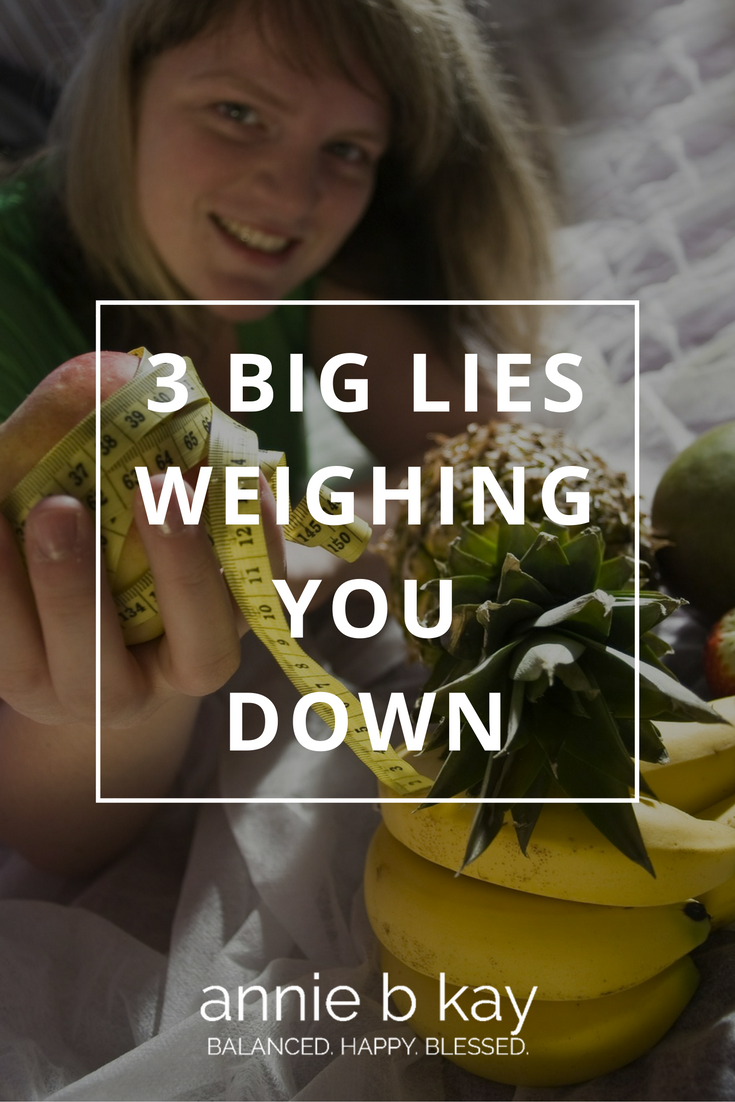
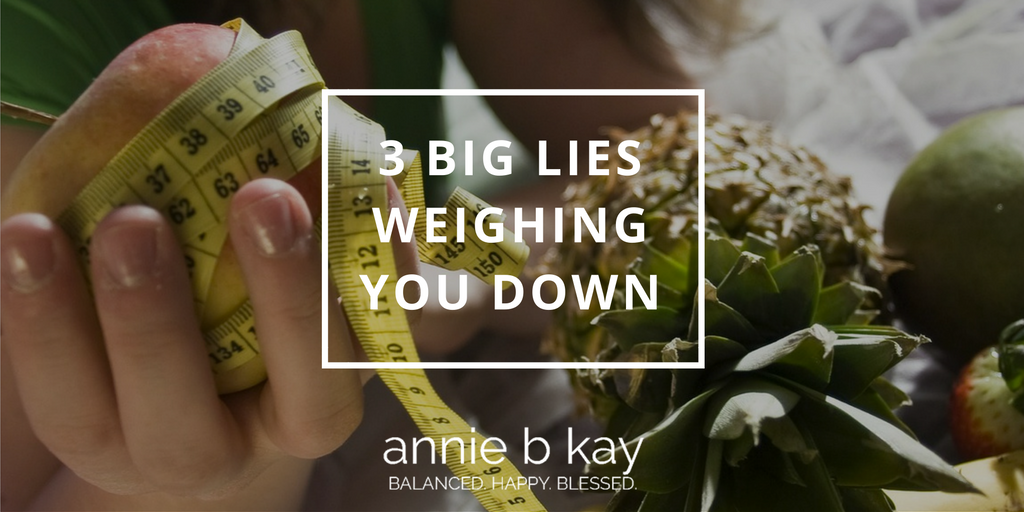
There are more than 3 lies being fed to those trying to follow healthy lifestyles that lead to natural healthy weight, but these three are an excellent place to start. These 3 lies point to the truth of feeling better, being healthier, and authentically expressing and doing what you are here to express and do.
Did you know that size does not necessarily correlate with health? In over twenty years of clinical nutrition practice, I have seen many people – women and men, who are technically overweight yet metabolically healthy. Too, I have seen many women and men who are slim yet metabolically imbalanced in mind, body, and spirit. In today’s culture, with a highly refined diet and ever-increasing stress, for many it is harder than ever to lose weight. It’s not impossible, but it just may be aiming at the wrong target.
You and I have a job to do. It’s to stop feeling bad about who we are, and start taking fantastic care of ourselves. It’s to stop believing lies and half-truths designed to make us feel bad and to follow healthy satisfying and balanced eating and physical activity that works to make us the healthiest, happiest version of ourselves that we can be.
Here are 3 big lies that are keeping you heavy, and the truth that will point the way to feeling fantastic:
1.If you can’t lose weight there is something wrong with you.
NOT TRUE!
It’s not you. For years I’ve spoken to women who feel responsible for weight gain and feel like failures because they can’t achieve the weight they were in high school. They are successful in all areas of life – big wage earners (despite economic discrimination) who run families, have healthy relationships, and yet in this one area, unsuccessful.
The toxicity in the food supply, years of metabolic dysfunction, an unhelpful mindset, and the resulting stress is the perfect storm to feeling unwell and defeated. The fact of the matter is that what will make you feel better – no matter the number on the scale – are your daily habits and choices, and your mindset.
2. You have to be ever-perfect at a diet for it to work.
NOT (usually) true!
Deprivation diets don’t work. Starvation or fasting diets, even intermittent fasting, which has some merit, has the dirty little secret of lowering your metabolic rate, sometimes by a lot and for a very long time. There may be a variety of advantages to lowering metabolic rate (it may make you live longer), but please go in with eyes open. If eating less is not something you’d be happy doing evermore, save yourself the time and grief – don’t do it.
The truth of the matter is that small changes, that you are able to practice day after day without feeling deprived, is the only way forward. Most people can’t transform overnight, but I have seen lots of folks do great with a step-by-step path. If you feel the energy of transformation, there are ways of taking advantage of it without it setting the stage of yo-yoing your way to nowhere.
3. It’s all about calories.
So NOT true!
Energy balance (calories in as food and drink minus calories out as activity and metabolism) is important but quality (nutrient density, macro-nutrient balance and quality) matters just as much or more. If you have inflammation in your body – if your joints are achy, if you are bloated (swollen, really) you can do ‘all the right things’ for weight management and not get anywhere. Cooling inflammation with thoughtful choices is critical and independent of calories. Beyond that, how you eat matters as much (even more) than that. Taking your time to chew your food (can you slow down to take 10 chews per bite?), and taking a few moments to breathe and enjoy your food with all five senses can go a long way to improving your digestive wellness and your weight.
As a high-schooler, I developed bulimia. It was a seemingly easy (or at least doable) solution to an impossible problem; how to eat all those cheeseburgers and cokes and milkshakes that everyone else was eating and still look as slim as the models in the magazines. I could almost do it. But not quite. I tell that full story in Every Bite Is Divine.
For decades now, I have been thinking and writing about how yoga can help us to be more fully aware of who we are. But there is a shadow underfoot. I’m a 55-year-old post-menopausal woman and I feel fantastic and beautiful. I’m an excellent yoga teacher at the top of my game. I don’t, however, fit the beauty ideal of the yoga world. The media world of yoga is getting awfully slim. Sigh.
But that’s not the whole of the yoga world. There are beautiful women and men of every age, of every size, or every color and creed using the gifts of yoga to feel better, look better, live longer and be the fullest expression of who they are today. If that’s you, look around this space. See if there is something here for you. Come be part of the conversation of how we live and love each day in a balanced, happy expression of our unique and blessed place in the wonder of nature and life.
The best way to participate in the conversation is to sign up for my monthly newsletter. My newsletter takes you deeper into the practice of being fully and happily blessed no matter who you are.
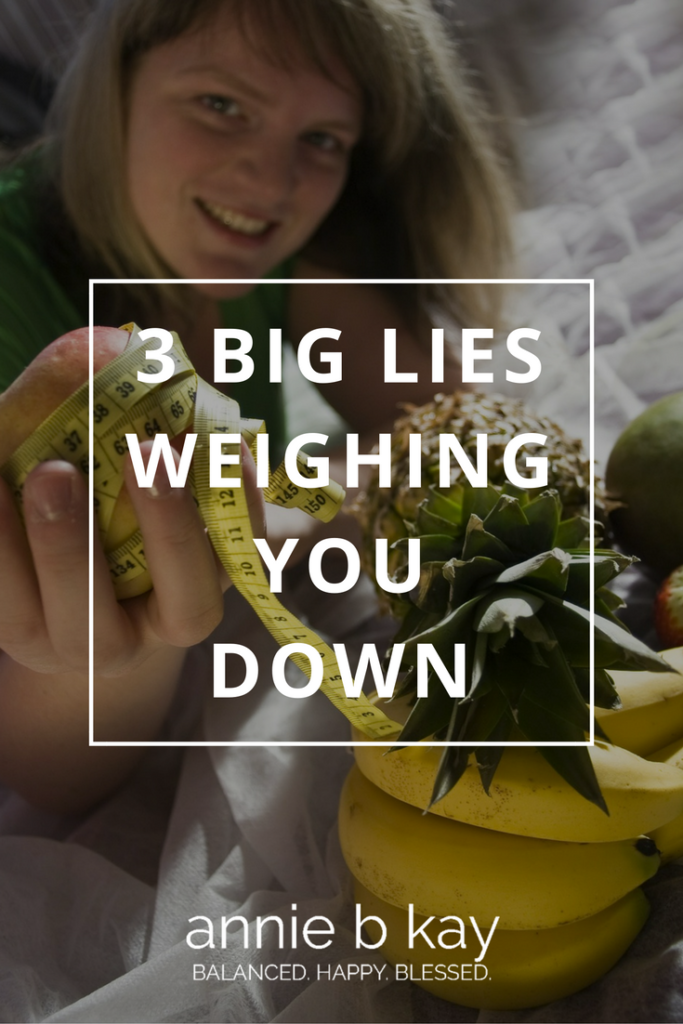
pinterest
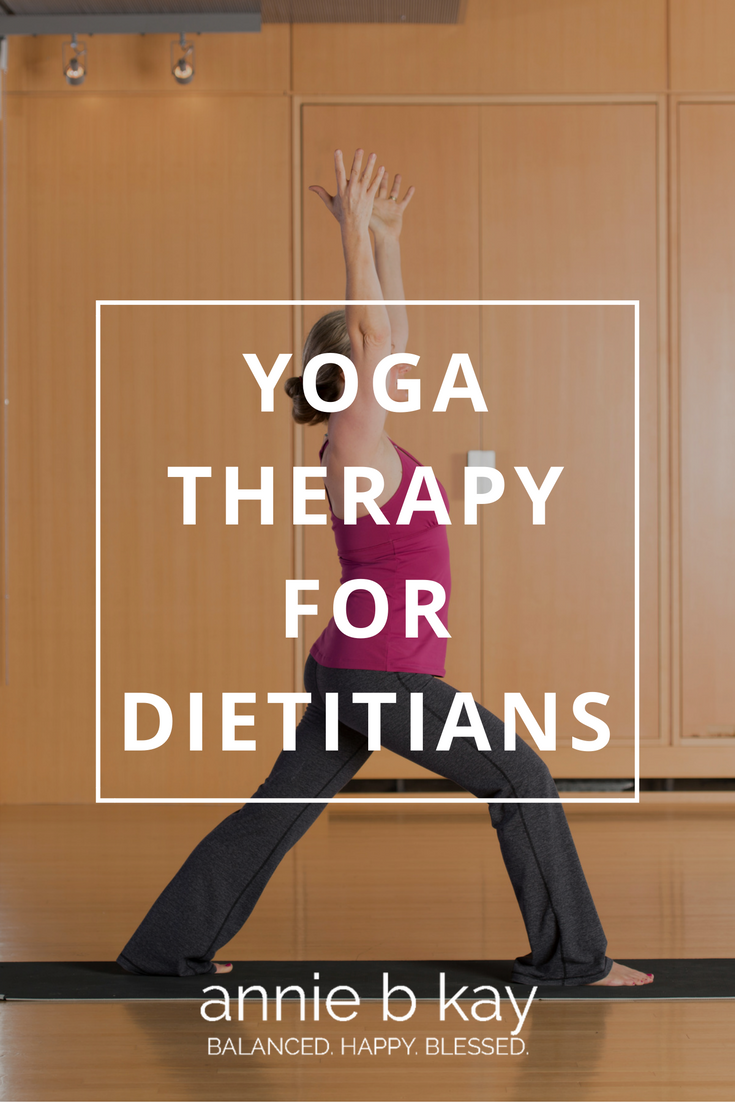

I love dietitians! They’re smart, well-educated and enthusiastic.
Unfortunately for them, they are also a great bargain relative to similarly-educated clinicians (I ponder what the Academy of Nutrition and Dietetics, AND, our professional organization has been doing in the last decade as nurses value has soared…and ours has not). There are many new certificate players in the nutrition field, and that’s good and there is room for everyone in the land where 7 out of 10 Americans die of preventable lifestyle-related chronic disease. I just don’t see, however, a credential with the required biochemical and broad nutrition coursework background, from community to food service to mind-body to communications, as dietitians. Nutrition is science, and psychology and biochemistry and even after nearly 3 decades, helping people with food often pushes me to the edges of my knowledge and ability. Granted, I’m biased. I am an RDN (registered dietitian nutritionist), so have the inside view of what it takes to earn and maintain it.
The way forward for dietitians (and everyone in a female-dominated profession) is for each of us to focus on our value. How can we, as individuals, boost our personal, professional and market value? One way is to cross-train. To expand your knowledge and expertise in several areas. Dietitians, here comes Ayurveda and yoga therapy.
Yoga & Nutrition
Those of you who have known me for a while know that I have been combining nutrition with yoga since before there was so much great science explaining the mechanisms of why it’s helpful. Yoga, it turns out, makes us better choice-makers. Yoga also creates an internal biochemistry that calms inflammation and when practiced regularly can be protective against chronic disease.
While I criticize the AND for our salary situation, I am also grateful for the ways they have supported me in my work as a writer and teacher of nutrition and yoga. I am thrilled to be speaking at FNCE in Boston this month, with world-renowned educator Dr. Sat Bir Khalsa of Harvard, and my friend and colleague the lovely Anu Kaur of the NIH. We’ll be talking about the science and practice of yoga therapy in dietetics, and highlighting how the field of yoga therapy is evolving through credentialing.
I’ll also be featuring colleagues in the field who are using yoga and yoga therapy in their nutrition practices. I’m inspired by this collection of practitioners. Thinking back to 2006-2007, when my first book came out, I was at FNCE (the Food and Nutrition Conference and Exhibition, the AND conference), and a tiny dark-haired woman came up to me at my booth, smiling ear to ear. She introduced herself, and only years later did I realize how sisterly we were. It was Beverly Price – a dietition-yoga teacher blending the two to help people with eating disorders. Now, Beverly owns a center in MI with an integrated staff including MDs, RDNs, and RYTs offering yoga-based therapies. She’s my business hero!
My work at Kripalu gives me a visible perch and happily, RDN-RYTs come to me when they are passing through. That’s how I met Andrea Leiberstein, a dietitian who works with mindful eating researcher Jean Kresteller on the program Mindfulness-Based Eating Awareness Training (MB-EAT), offered at Kripalu and elsewhere. Andrea also trains health professionals to use Mindful Eating to help with weight and eating.
There are so many more RDNs in this budding field and I look forward to featuring them over the next months here on the blog, but if you are at FNCE, check out our talk on Sunday morning. If our last talks are any indication, it will be STO, so get there early!
For anyone in DIFM, I will be giving a short demo on plant energetics with a plant-song device from Italy at the Happy Hour, But I have to say, the best reason to stop by there is to see the incomparable Kathie Swift get yet another award (how does she find room on her mantle for all her awards?) for Lifetime Achievement in Integrative and Functional Nutrition.
I will also be at the Member Product Marketplace on Monday, offering special pricing and free shipping on my 2 books, and a special on my CE-program: Yoga and Meditation: Tools for Weight Management through Wolf Rinke. Please do come by!
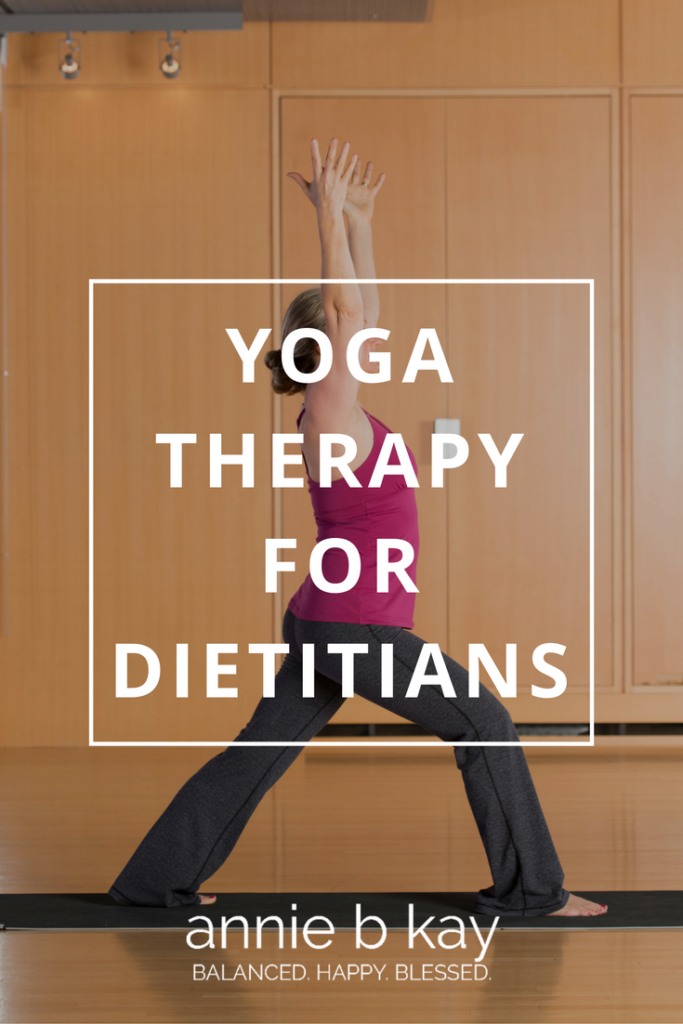
Pinterest
















